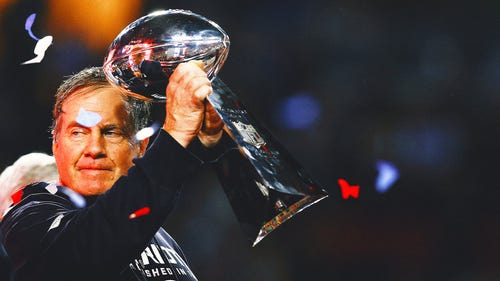
Northwestern-union situation sees key secret vote Friday
Northwestern University football players are scheduled to vote Friday on whether to join a union -- but don't expect a quick resolution to the question of whether those athletes can bargain for things like medical expenses or funding help former players finish up their school work.
For starters, the vote will be called off if the National Labor Relations Board agrees to review the decision of a hearing officer, who ruled last month that Northwestern's football players are employees of the university and, therefore, have a right to form a union.
And even if Friday's secret vote is held, the ballots will be sealed until there is a decision by the labor board on whether to hear Northwestern's appeal.
The scheduled vote -- and the uncertainty about what happens next -- come in the wake of a March 26 decision by Peter Ohr, the labor board's regional director, who ruled that football players at Northwestern are employees of the school and can form a union for the purpose of collective bargaining.
Only scholarship football players who still have eligibility left can vote in the election. If a majority of those approve, scholarship football players would join the College Athletes Players Association.
In the appeal -- officially known as a "request for review" -- Northwestern asserted that Ohr "misapplied and departed from officially reported board precedent" and that his findings contained repeated errors in the interpretation of the facts of the case.
That appeal was filed April 9, but it's unclear when the board will decide whether to agree to review Ohr's decision.
Ohr's decision opened another front in a burgeoning question of whether college athletes -- particularly in football and men's basketball -- deserve more than a full-ride scholarship as compensation for playing. The question centers on one fact: Those two sports annually generate billions of dollars in revenue.
Two federal lawsuits have accused the NCAA and the five largest conferences of violating anti-trust law and seek to abolish the rules that limit compensation to players at the cost of a scholarship. And while the leaders of the union movement at Northwestern have said they don't anticipate pushing for outright pay for players, the outcome of the case could dramatically alter the landscape.
In his decision, Ohr noted the various aspects of the football program that are business-like and also pointed to the amount of time that football players devote to their sport -- 50 to 60 hours a week during the month before the season starts and 40 to 50 hours a week during the season. Taking that into account, he rejected one of Northwestern's arguments, that the players are "primarily students," and concluded that they are actually employees who provide a valuable service in exchange for compensation -- their scholarships.
In Northwestern's appeal, the school's attorneys called Ohr's decision "unprecedented" and asserted that he "set out to alter the underlying premise upon which collegiate varsity sports is based.
"By finding that Northwestern University's football program is a commercial enterprise and that its football scholarship student-athletes are 'employees' within the meaning of the National Labor Relations Act ... the regional director ignored the evidence of Northwestern's primary commitment to the education of all of its student-athletes, evidence that fully supports that its student-athletes are primarily students, and not employees."
To underscore that point, Northwestern's attorneys pointed to the school's 97 percent graduation rate for football players -- the highest among schools in the Football Bowl Subdivision. That, the attorneys wrote, "demonstrates the emphasis that Northwestern places on the academic success of its student-athletes."
They also wrote that the school's effort to recruit football players is not based primarily on their athletic prowess.
"Rather," the lawyers wrote, "the record is clear that recruitment of student-athletes -- just like recruitment of all Northwestern undergraduates -- focuses on academics."
Northwestern also took aim at the fact that Ohr took testimony from Kain Colter, a former quarterback for the school who has spearheaded the push to unionize football players. His testimony helped form the basis for Ohr's assessment about how much time Northwestern players devote to football.
"Colter admitted that he aspired to play professional football, so it is hardly surprising that he devoted a substantial amount of time to pursuing his dream," Northwestern's lawyers wrote. "But there was no evidence that Colter could speak either for Northwestern's values or the priorities of his teammates."
Just as there is no clear timetable for the labor board to decide whether to review the decision, there is also no clear timetable for how long that review would take, if it's granted.
And if it doesn't grant a review, or does and upholds the hearing officer's decision, it is expected that Northwestern officials will file suit in federal court in an attempt to block implementation of the decision.









